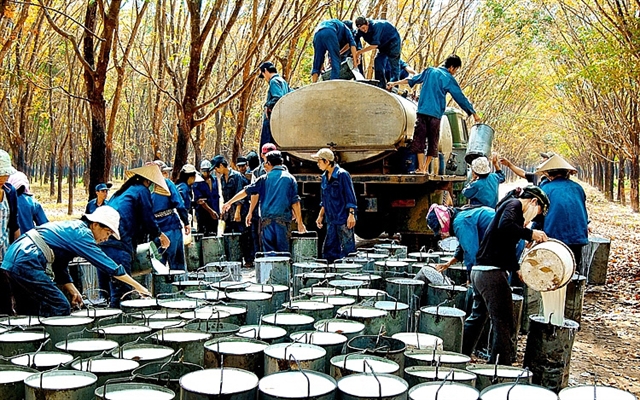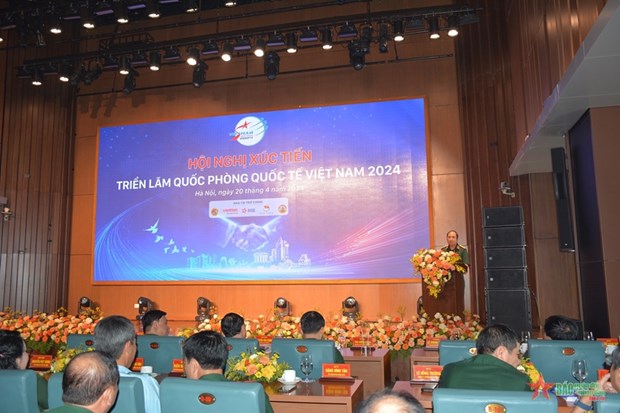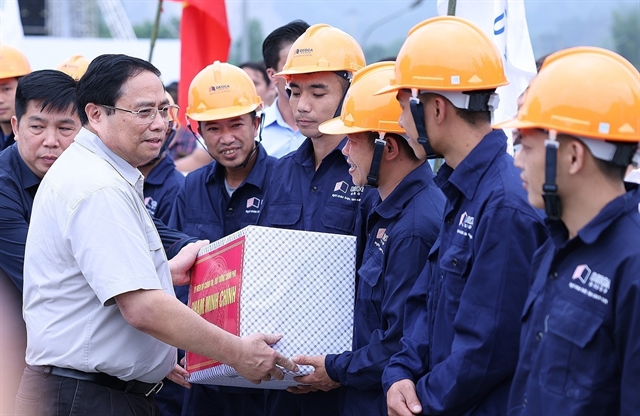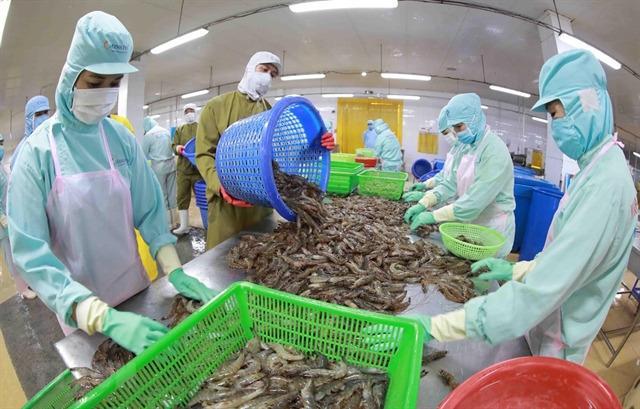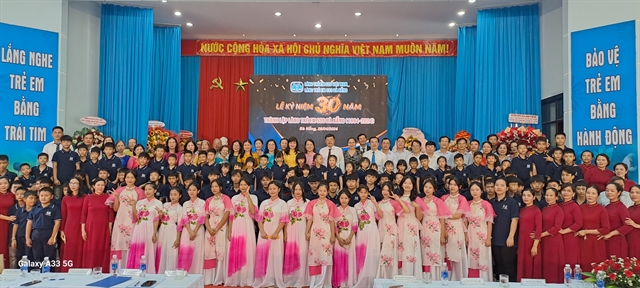 Society
Society

The World Health Organisation (WHO) has announced that Việt Nam has eliminated lymphatic filariasis as a public health problem.
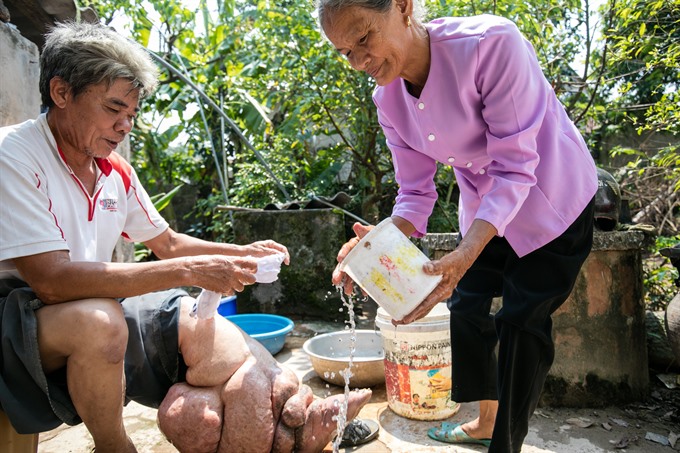 |
| A patient washes his leg, which is swollen from lymphedema caused by lymphatic filariasis.— Photo RTI International/Nguyen Minh Duc |
HÀ NỘI — The World Health Organisation (WHO) has announced that Việt Nam has eliminated lymphatic filariasis as a public health problem.
According to the WHO, lymphatic filariasis is an infection transmitted to humans by mosquitoes.
The painful and profoundly disfiguring visible manifestations of the disease – lymphoedema, elephantiasis and scrotal swelling – occur later in life and can lead to permanent disability.
Patients are not only physically disabled but also suffer mental, social and financial losses contributing to stigmatisation and poverty.
WHO said elimination of lymphatic filariasis is possible by stopping the spread of infection through large-scale treatment (called mass drug administration) delivered in annual doses to all at-risk individuals in endemic areas.
The medicines have a limited effect on adult parasites but effectively reduce the density of microfilariae in the bloodstream and thus prevent the spread of parasites to mosquitoes.
“Lymphatic filariasis used to be endemic in several parts of Việt
"We will continue to provide quality care for people affected with complications of this disease and ensure post-elimination surveillance, as guided by the WHO," she said.
The WHO also said that in Việt
Annual mass treatment campaigns between 2002 and 2008 stopped transmission in remaining endemic areas, and surveillance has continued. Last year, the country established a pioneering new training programme to ensure sustained care for people with complications from lymphatic filariasis.
In a related movement, the US Agency for International Development (USAID) on Tuesday congratulated the Government of Việt
USAID has supported Việt
Besides Việt
WHO Director-General Dr Tedros Adhanom Ghebreyesus and Regional Director Shin Young-soo said, “We sincerely congratulate
Decades of their efforts with support from partners — including the governments of France, Japan, the Republic of Korea and the United States of America — as well as donations of medicines have enabled them to achieve this milestone and ensure future generations are safe from this dreadful disease, he said.
Since the WHO launched the Global Programme to Eliminate Lymphatic Filariasis in 2000, a total of 11 countries and areas in the Western Pacific Region have been recognised for eliminating lymphatic filariasis as a public health problem: Cambodia, China, Cook Islands, Niue, the Marshall Islands, Palau, the Republic of Korea, Tonga, Vanuatu, Việt Nam, and Wallis and Futuna. — VNS


